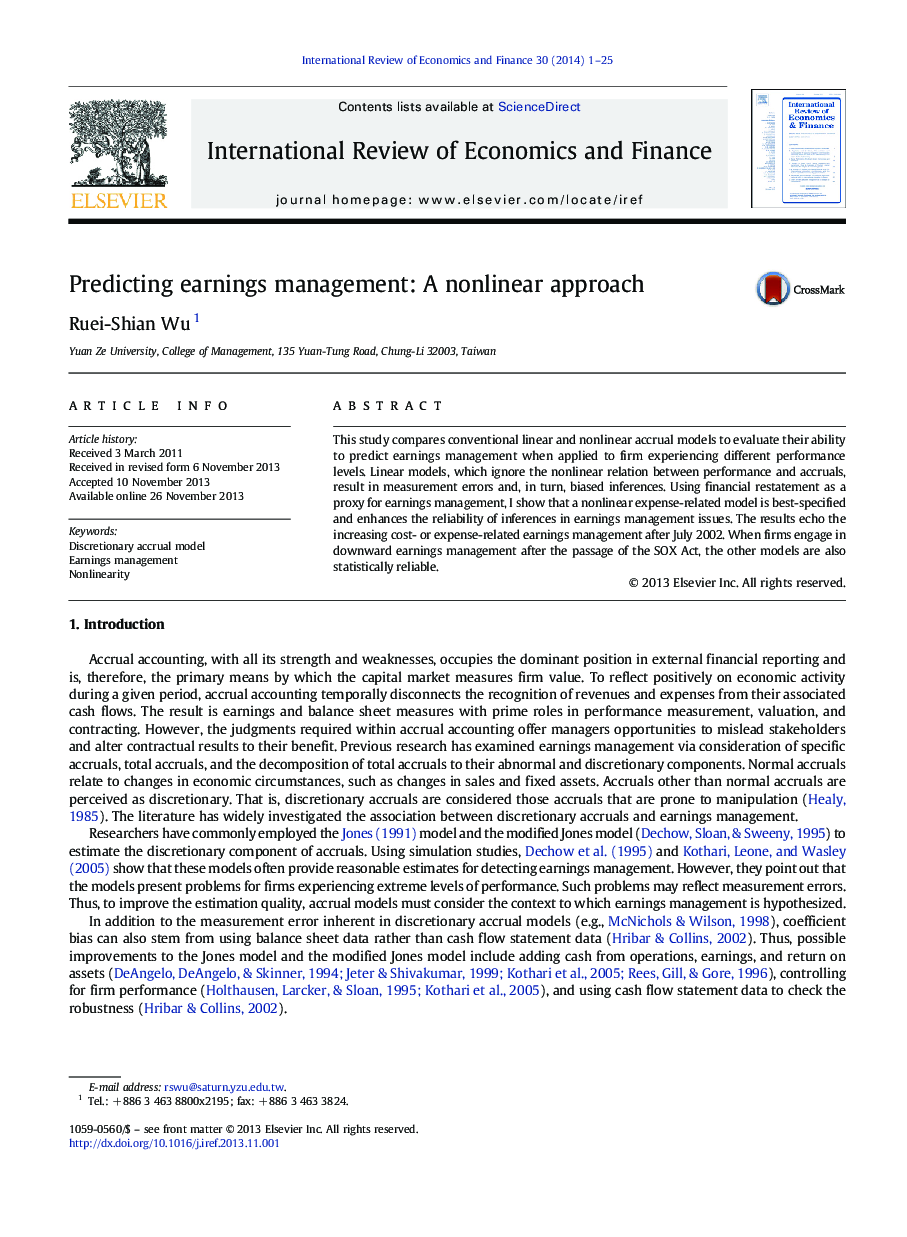| Article ID | Journal | Published Year | Pages | File Type |
|---|---|---|---|---|
| 5083606 | International Review of Economics & Finance | 2014 | 25 Pages |
â¢The difference in estimated coefficients among performance quartiles leads to asymmetric influences on accruals.â¢Nonlinear accrual models provide greater discriminatory power in identifying both upward and downward earnings management.â¢Cost- or expense-related earnings management increases after the passage of the Sarbanes-Oxley Act in July 2002.â¢The nonlinear expense-related accrual model enhances the reliability of inferences in earnings management issues.
This study compares conventional linear and nonlinear accrual models to evaluate their ability to predict earnings management when applied to firm experiencing different performance levels. Linear models, which ignore the nonlinear relation between performance and accruals, result in measurement errors and, in turn, biased inferences. Using financial restatement as a proxy for earnings management, I show that a nonlinear expense-related model is best-specified and enhances the reliability of inferences in earnings management issues. The results echo the increasing cost- or expense-related earnings management after July 2002. When firms engage in downward earnings management after the passage of the SOX Act, the other models are also statistically reliable.
